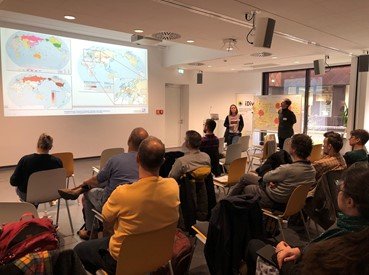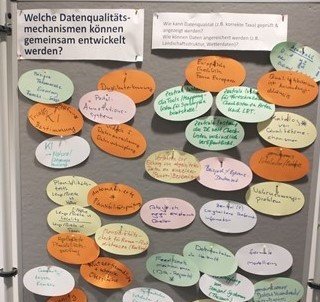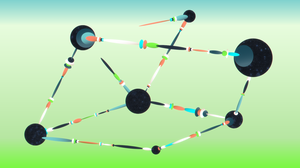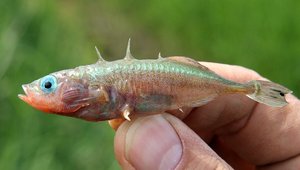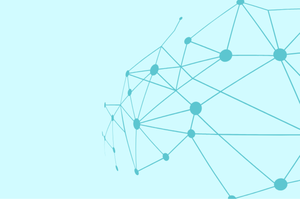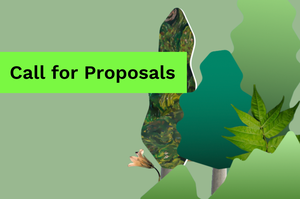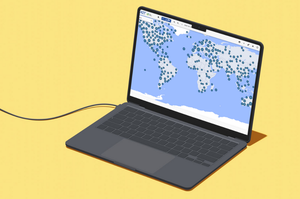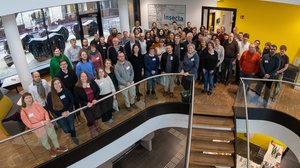The Living Atlas: How the Biodiversity Portal Illuminates the Abundance of Species

The Living Atlas of Nature in Germany is currently being created in NFDI4Biodiversity. The aim is to bundle species observations in a descriptive way in order to make them available for specialised applications and the general public. The portal is a joint project of NFDI4Biodiversity and the broader biodiversity community.
The promotion of biodiversity and the protection of our nature require joint efforts and close cooperation between different actors. An important initiative of this collaboration is the Living Atlas of Nature in Germany (LAND) – a portal developed within the framework of NFDI4Biodiversity that bundles species observations in Germany. The publicly available atlas presents selected data sets on species occurrence clearly on a map and offers various filter options. The first version of the Living Atlas is currently being implemented as part of NFDI4Biodiversity.
An important milestone for the project was a community workshop that took place on 30 and 31 March 2023 (see event page). More than 50 representatives from associations, natural history societies, authorities and science took part and presented the current status of developments. In addition, further requirements and wishes from the biodiversity community were discussed and translated into concrete work assignments.
From Feasibility Study to Living Atlas: Focus on Data Quality, Participation and Configuration of the Portal
The first day of the workshop began with an introductory talk by Aletta Bonn (German Centre for Integrative Biodiversity Research (iDiv)), Anton Güntsch (Botanic Garden and Botanical Museum Berlin) and Birgitta König-Ries (iDiv), who presented the link between the feasibility study on the Living Atlas of Nature Germany in 2016 and the current project within the NFDI4Biodiversity consortium. This was followed by short keynote presentations on current developments in other portals and data platforms of the community.
→ The LIVING ATLAS OF NATURE GERMANY is still under development, but can already be visited here.
In a first workshop session, data quality mechanisms were discussed to explore methods for testing and improving observation and collection data. Several topics of particular relevance to data quality were identified, such as plausibility testing, taxonomic checklists, data modelling and vocabularies, AI techniques and portal functions.
In another session it was discussed how to stimulate active participation in a living atlas. Target groups such as universities, research organisations, museums, specialised authorities, natural history associations and interested citizens were identified. Incentives and added values for the community were also discussed, such as motivation for participation through competitions, simple workflows, quality requirements and the interconnection of different data sources.
Session three was dedicated to the configuration of the portal, especially the search widget. Questions about the display of information, filters, quick searches and editorial content were discussed. Concrete configuration wishes were identified and feature requests for the operator were also formulated.
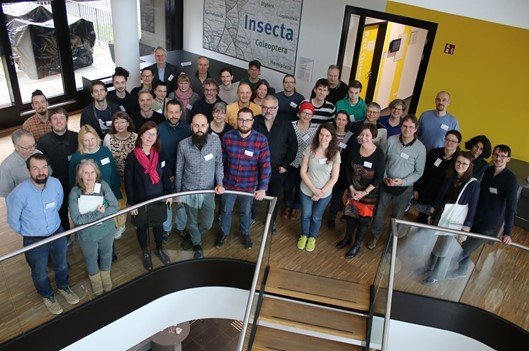
The day ended with a keynote speech by Barbara Ebert (GFBio e.V.), who shed light on the legal and organisational aspects of data transfer, specifically the supply and utilisation chain for data, which must be regulated by agreements between data archives and data producers.
In summary, the presentations, discussions and workshops on Day 1 resulted in the requirements for further developments and cooperation in building the Living Atlas of Nature Germany.
Community participation and synergies: Future perspectives of the Living Atlas
The second day of the workshop was characterised by ideas for the concrete design of the Living Atlas. A keynote lecture on data visualisation presented the possibility of using data stories to present complex information in a clear and appealing way. Two examples, a data story about fish counts and a science comic about bird occurrence data, illustrated the potential of these innovative formats.
The other sessions were dedicated to the mobilisation and digitisation of data. The focus was on concrete data sets to be made visible in the atlas. Topics such as data standards, data publication, licences and data rights were discussed. The connection of data to the data infrastructure of the Global Biodiversity Information Facility (GBIF) was an important focus. Cartographic visualisation of biodiversity data was also the subject of one session. The basics of cartography were explained and challenges in data visualisation and interpretation were discussed. Questions on colour selection, classification of datasets and source criticism were addressed.
During an open discussion round, wishes and suggestions for the Living Atlas were discussed. This included topics such as data harmonization, the target audience of the portal, data licensing, and various functionalities that should be provided to users.
The final plenary discussion focused on the perspectives and goals of the Atlas. Concrete proposals for autumn 2023 and 2025 were developed. The mobilisation of data and the implementation of simple functions were identified as priorities. Other aspects such as the coverage of different taxon groups, regular workshop series and appealing visualisations were also discussed.
Overall, the workshop confirmed the need for a comprehensive biodiversity portal such as the Living Atlas of Nature of Germany. The close connection with the data infrastructures of GBIF and the National Research Data Infrastructure NFDI offer great potential for improved data availability and analysis possibilities. It is important to keep the community motivated and involved and to feed back regular developments.
